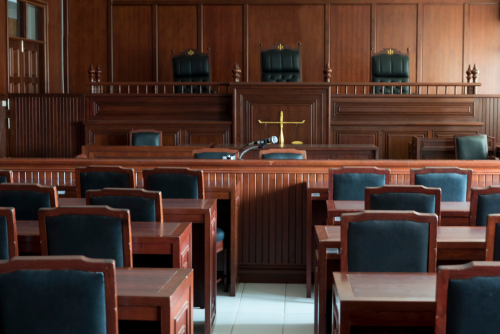Judge nixes courtroom portraits mostly portraying white judges before Black defendant's trial

Image from Shutterstock.com.
A judge in Fairfax, Virginia, has agreed to a Black defendant’s request to remove courtroom portraits that mostly portray white judges before his trial Jan. 4.
Judge David Bernhard of the 19th Judicial Circuit Court of Virginia ordered the removal in a Dec. 20 opinion letter, report Law360 and the Washington Post.
“The portraits may serve as unintended but implicit symbols that suggest the courtroom may be a place historically administered by whites for whites, and that others are thus of lesser standing in the dispensing of justice,” Bernhard wrote.
The defendant’s right to a fair trial outweighs the countervailing interest of honoring past judges with courtroom portraits, Bernhard said. The portraits “are of benefit to only a few insiders who might fondly remember appearing before a particular judge or to a retired judge’s family making a rare visit to the courthouse,” he wrote.
About 45 out of 47 portraits of judges in Fairfax circuit court courtrooms are of white judges, Bernhard said. Only three African American judges have been elected to the court’s bench, all of them since 1990.
Bernhard has already banned judicial portraits from his own courtroom. But the defendant, Terrance Shipp Jr., is being tried in a different, larger courtroom because of the COVID-19 pandemic. The charges against Shipp include eluding police and assaulting a police officer.
When Shipp’s lawyer filed the motion, he feared that the trial could take place in a courtroom with a portrait of a late Virginia Supreme Court justice who wrote an opinion upholding the state’s ban on interracial marriage, according to the Washington Post. The U.S. Supreme Court struck down the ban in Loving v. Virginia. Shipp’s trial has since been moved to a different courtroom.
Shipp’s lawyer is Bryan Kennedy, a senior assistant public defender.
“Too often, the actors in the system do not look like the people who are swept up into it,” Kennedy told the Washington Post. “This ruling is a start to ensure the optics in our courtrooms are more consistent with justice, but more work is needed to improve the substance as well as the appearance of justice.”
Prosecutors did not oppose removal of the portraits.



